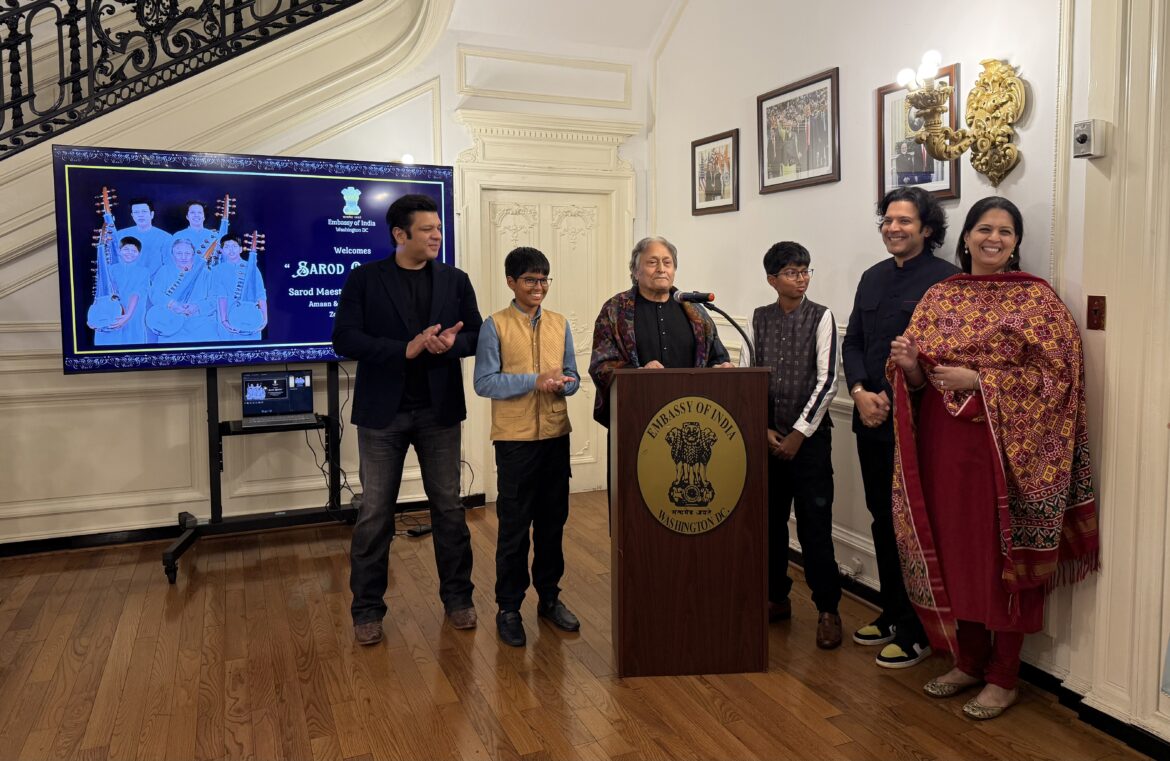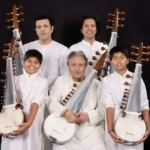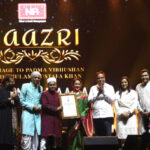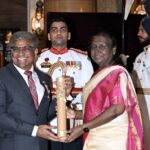Sarod maestro and composer Padma Vibhushan Amjad Ali Khan has announced that the “Sarod Quintet – Three Generations, One Legacy” concert at the Kennedy Center in Washington DC, on September 17, 2025, will be dedicated to India’s Prime Minister Narendra Modi, who marks his 75th birthday the same day.
“Since September 17th is the birthday of our Prime Minister Narendra Modi, we would like to dedicate our concert to him. I hope we will continue to receive his guidance and blessings,” Maestro Khan told South Asian Herald.
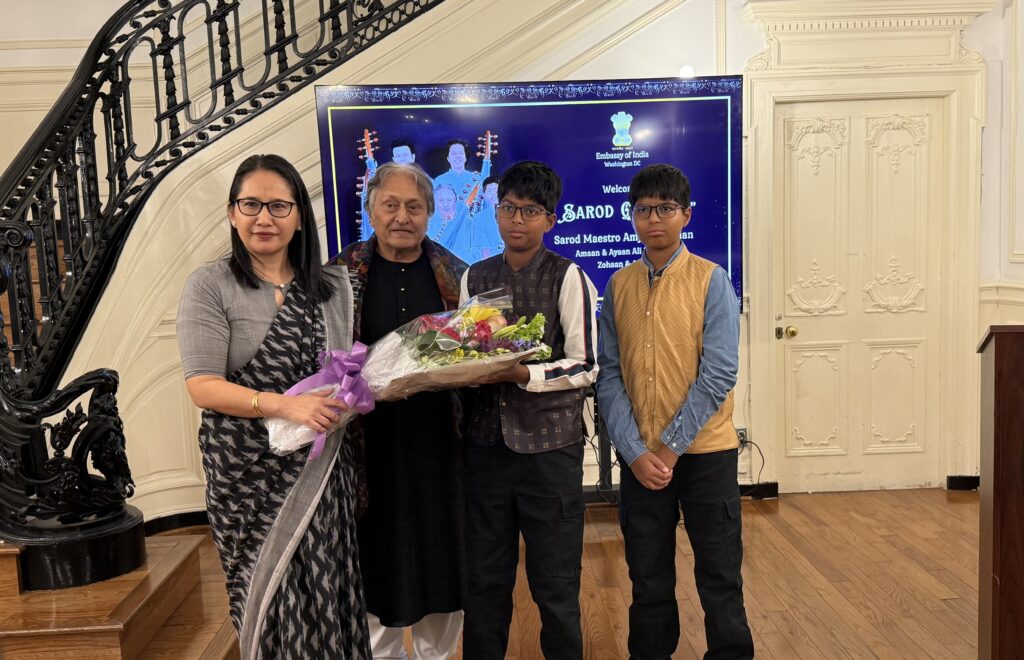
On September 16, Maestro Khan and his family were honored at a reception hosted by the Embassy of India in Washington, D.C. Speaking to SAH about the uniqueness of the Kennedy Center performance, he explained that while he and his sons typically perform solo or as a duo or trio, this occasion is special. “We are invited for Sarod Quintet, all five of us,” he said.
Maestro Khan’s grandsons, Abeer and Zohaan, are still in school and rarely have the time to travel. He used the opportunity to make an appeal to educators emphasizing, “It’s my appeal. It’s my humble request, to all the schools of the world that please select the creative children of the school and allow them to become an artist. Because every artist is ruined because of intense pressure from homework.”
He stressed that it is the responsibility of school principals everywhere to identify and nurture “talented and creative” children. “I hope my grandchildren are encouraged and supported by their school,” he added.

In his address at the Embassy, Khan highlighted the power of music to transcend barriers. He reminded the audience of the universality of sound, noting that while languages can divide, “the entire universe is connected to the seven musical notes.”
The Kennedy Center concert is hosted by the DC South Asian Film Festival (DCSAFF) in collaboration with the Embassy of India. Khan credited Manoj and Sangita Singh of DCSAFF and Uday Kamal for inviting him and his family to perform in the United States.
“My family has kept me alive, and we are still performing,” Khan said, acknowledging his son Ayaan Ali for teaching his grandsons during the COVID-19 pandemic. “It’s just a wonderful moment for the family, for all of us to be here and for the children to make Washington D.C. debut at Kennedy Center,” Ayaan added, seeking blessings for the next generation.
Amaan Ali expressed gratitude for the musical lineage they inherited. “I say with all humility that if Ayaan and I were not born as his sons, whatever little we have accomplished or we are trying to accomplish, would have taken us another 40-50 years. So, it’s a blessing,” he said.
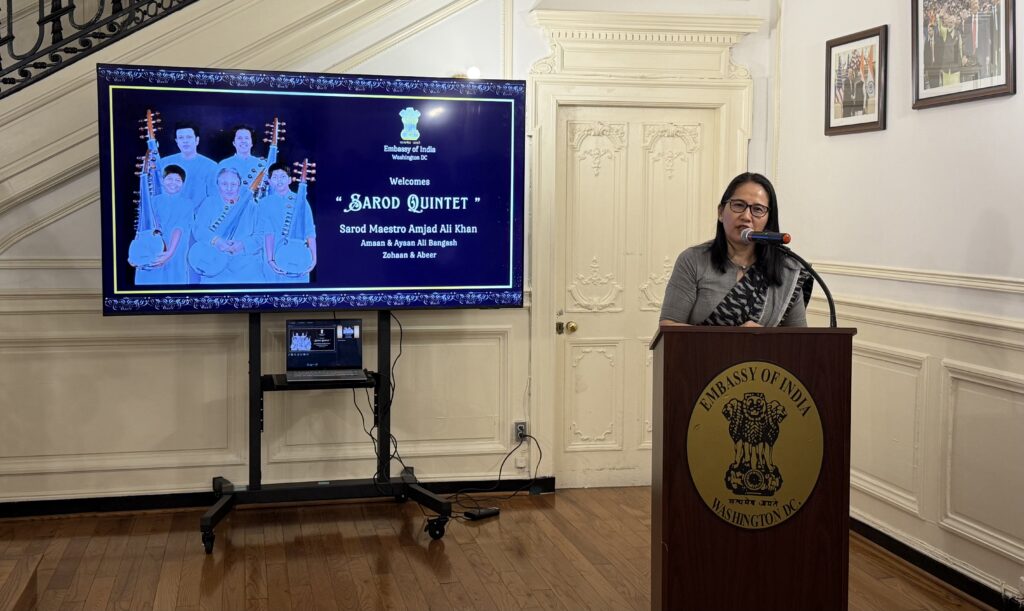
Amaan emphasized the value of hard work: “Not having an opportunity is not a problem, but getting an opportunity and wasting it is a crime. I hope both the boys will also do a great job in the future.”
Deputy Chief of Mission at the Embassy of India, Namgya Khampa, warmly welcomed the maestro, describing him as a “national treasure.” She added, “Today is about celebrating you and your family. Thank you for coming across to the United States to give us an opportunity to enjoy your art.”
She noted that the Maestro’s sons Amaan and Ayaan, and grandsons Abeer and Zoohan, who torchbearers of the phenomenal musical lineage of the Banglashkarana. “Amaan Ali and Ayaan Ali, are virtuosos in their own right, and torchbearers of this great legacy,” she added.
Ambassador Khampa highlighted the performance as a symbol of the deep cultural ties between India and the United States. “As we celebrate the genius of Ustadji, we are also celebrating the enduring strength of the people-to-people linkages between India and the United States,” she said. “These are ties built on shared values, shared interests, and also on the shared appreciation of art, ideas, and human connection.”

Reflecting on Khan’s legacy as the son of Ustad Hafiz Ali Khan, Khampa noted that for decades he has carried India’s musical heritage across the world. From Carnegie Hall in New York to the Sydney Opera House, she said, his music has introduced audiences worldwide to the depth of Indian classical traditions.
She recalled her own experience of attending one of his performances at the United Nations in New York more than a decade ago. “I remember being mesmerized by the performance that lingered well after the actual performance,” she said.
The Ambassador likened his music to the work of diplomacy which is “to build bridges, to create harmony, to nurture friendships and to find common purpose and beauty.” She praised his openness to collaborate across generations and cultures, calling it “a tremendous source of inspiration.”
Extending gratitude to the Indian diaspora in the United States, Khampa acknowledged their role in bringing artists like Khan to American audiences. “Time and again, diaspora friends have ensured that India’s music and heritage can find a place and a home in American hearts,” she said.


